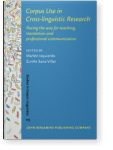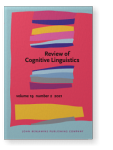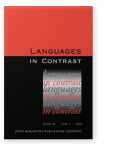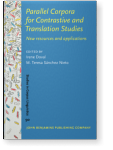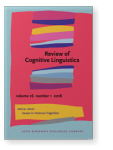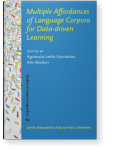Teresa Molés-Cases
List of John Benjamins publications for which Teresa Molés-Cases plays a role.
Online Resource
E-ISSN 1877-9638
Articles
2023 Chapter 3. Reporting direct speech in Spanish and German: Manner-of-speaking and thinking-for-translating Corpus Use in Cross-linguistic Research: Paving the way for teaching, translation and professional communication, Izquierdo, Marlén and Zuriñe Sanz-Villar (eds.), pp. 51–66 | Chapter
This chapter focuses on the translation of manner-of-speaking expressions in a Spanish to German translation corpus of narrative texts, the translation unit examined being reporting verbs introducing direct speech. It aims, first, to identify translation techniques and, second, to explore whether… read more
2021 Translating narrative style: How do translation students and professional translators deal with Manner and boundary-crossing? Review of Cognitive Linguistics 19:2, pp. 517–547 | Article
Within the context of the Thinking-for-translating framework, this paper analyses the translation of boundary-crossing events including Manner from English into German (both satellite-framed languages) and Catalan and Spanish (both verb-framed languages) to investigate whether student… read more
2020 On the translation of Manner-of-motion in comics: Evidence from an inter- and intratypological corpus-based study Languages in Contrast 20:1, pp. 141–165 | Article
This paper focuses on the translation of Manner-of-motion in comics, a genre in which information is conveyed in both verbal and visual language. The study draws on Slobin’s Thinking-for-translating hypothesis, according to which translators tend to distance themselves from the source text in… read more
2019 Indexation and analysis of a parallel corpus using CQPweb: The COVALT PAR_ES Corpus (EN/FR/DE > ES) Parallel Corpora for Contrastive and Translation Studies: New resources and applications, Doval, Irene and M. Teresa Sánchez Nieto (eds.), pp. 197–214 | Chapter
This contribution presents a section of the Corpus Valencià de Literatura Traduïda (COVALT), created by the research group of the same name (Department of Translation and Communication, Universitat Jaume I, Spain). The COVALT corpus is a four-million word corpus made up of narrative works… read more
2018 Some advances in the study of the translation of manner of motion events: Integrating key concepts of Descriptive Translation Studies and ‘Thinking for Translating’ Issues in Humour Cognition, Dynel, Marta (ed.), pp. 152–190 | Article
Manner of motion represents a translation problem, especially between languages that belong to different typological groups, since their users (in this case mainly authors and translators) address the semantic component of Manner in different ways. In order to give a full account of the… read more
2015 Webquests in translator training: Introducing corpus-based tasks Multiple Affordances of Language Corpora for Data-driven Learning, Leńko-Szymańska, Agnieszka and Alex Boulton (eds.), pp. 199–224 | Article
The use of corpora has proved to be a valuable pedagogic resource, not only in language learning but also in translator training. However, corpora are sometimes seen by students as excessively complicated in terms both of the great amount of information they provide and of the complexity of their… read more
